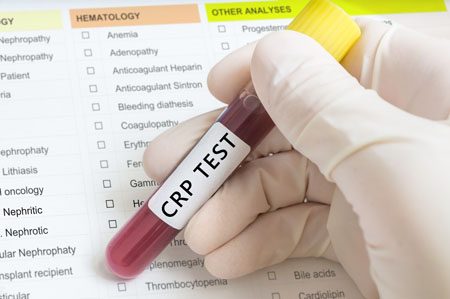Mysteries Remain in the Relationship Between Inflammation and Depression
At the 2017 meeting of the American College of Psychiatrists, researchers Charles L. Raison and Vladimir Maletic gave a plenary lecture on the role of inflammation in depression. Meta-analyses have confirmed that inflammatory markers including Il-1, Il-6, TNF alpha, and CRP are elevated in about 1/3 of depressed patients. However, Raison and Maletic made the point that anti-inflammatory medications are not for everyone. While patients with elevated levels of CRP at baseline responded to an anti–TNF alpha antibody, patients with low CRP values at baseline actually got worse.
Raison and Maletic cited three studies that have also linked CRP to differential response to traditional antidepressants. In unipolar depression, those with low CRP respond well to selective serotonin reuptake inhibitor (SSRI) antidepressants, while those with elevated blood levels of CRP seem to respond better to a dopamine-active antidepressant such as bupropion or a noradrenergic-active antidepressant such as nortriptyline or the serotonin norepinephrine reuptake inhibitor (SNRI) antidepressant duloxetine. Patients with high inflammation at baseline also seem to respond better to intravenous ketamine and oral doses of omega-3 fatty acids.
Studies of animals have suggested that inflammation throughout the body is implicated in depression. Studies in which rodents are repeatedly defeated by larger animals show that these animals have increased inflammation from lymphocites (a type of white blood cells) in the blood, and monocytes (another type of white blood cells) from the bone marrow and spleen. This inflammation can induce depression-like behaviors in the rodents, which is prevented if the inflammatory mechanisms are blocked. These data suggest that depression is not just in the brain—inflammation from all over the body plays an important role.
Psychosocial stressors can also increase inflammation. Inflammation in response to a stressor is more dramatic in patients with a history of adversity in childhood.
One key issue that needs clarification is the sequence in which inflammatory changes occur. Patients who undergo an immune challenge with the inflammatory cytokine interferon-alpha (used to treat hepatitis C) experience depression, and there is a large acute increase in inflammatory markers (such as p38 and MAP kinase) in proportion to the severity of the depression. However, weeks later the elevated markers are no longer evident.
Paradoxically, some immune challenges may even have therapeutic effects in depression. For example, an infusion of lipopolysaccharides (molecules that make up the outer membrane of certain bacteria) actually improves depression. Whole body hyperthermia is another inflammation-causing treatment in which the body’s temperature is increased from 98.7 degrees Fahrenheit to well over 100 degrees using hot water blankets or large incubator-like chambers. This produces increases in inflammatory marker IL-6. Surprisingly, this therapy sometimes used for cancer produces antidepressant effects the following day, which correlate with the degree of increased inflammation.


